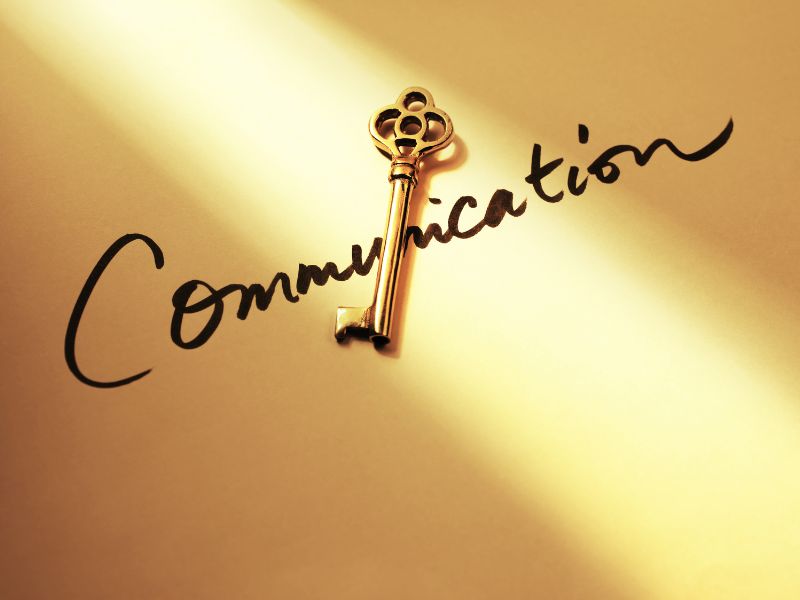Learning to communicate with your partner is key to any successful relationship, it’s no secret. But when you’re married, it can sometimes feel like you’re speaking different languages. Suddenly, what was once a minor disagreement can turn into a full-blown argument.
If you find yourself in this situation, don’t worry – you’re not alone. Communication is a process that takes time, patience, and practice. But if you put in the effort, it will be worth it – I promise. So read on for some tips on how to improve your circumstances.
Who knows, maybe by the end of this article you and your spouse will be able to understand each other perfectly (Ok, probably not – but it’s worth a shot, right!)
Overview of Effective Communication in a Relationship
“I love my partner, but we just can’t see eye to eye most times.” If this sounds familiar, you’re not alone. Think about the last time you had a disagreement with your partner. What happened? Chances are, it wasn’t the content of what was said that caused the problem, but how it was said.
The way we communicate [1] with our partners has a huge impact on whether or not they feel heard and understood.

Here are some tips on learning to communicate with your partner:
1) Pay attention to your tone of voice.
Avoid sounding judgmental or critical. Instead, try to sound curious and interested in what your partner has to say. I understand this one firsthand, in my household, Im forever told I have a ‘nagging’ voice.
It hurt to hear but it was constructive criticism that I learned from and when I amended my tone I noticed what I said was received differently.
2) Listen more than you talk.
This may seem obvious, but it’s important to actually hear what your partner is saying instead of just waiting for your turn to speak. Ever heard the saying ‘Don’t listen to speak but listen to hear.’ this simply means listen to what’s being said instead of being defensive.
Yes, I get it, the idea of backing down is not appealing but at times it is the smart choice. There are going to be other times or occasions to be right but you do not have to win all the time. Not at the cost of your marriage or relationship.
3) Be patient and respectful.
Even if you don’t agree with what your partner is saying, it is important to so amicably. It’s okay to disagree, but avoid getting into a shouting match or name-calling. Remember that you’re on the same team.
Okay, that being said, this one is often an issue in my marriage. We are two alphas and we both want to be right. So, we each had to learn: do I want to be right or do I want us to work? In a nutshell, it is a ‘give & take’ approach when you disagree, and takes a while to implement.
4) Communicate effectively.
Instead of using “you” when making statements rather use “I”. For example, instead of saying “You never listen to me,” try saying “I feel like I’m not being heard.” This will help avoid accusations and defensiveness from your partner.
Trust me on this, you cannot attack and expect to be heard but the approach should be about how you feel (also don’t forget your tone). Also, take care when approaching topics about your relationship with your in-laws that will always be a pack of dynamite that takes just a tiny spark to set an explosive confrontation.

Improving Communication with your Partner
Active Listening
Active listening is all about being mindful and attentive to the person that you’re communicating with. By actively listening and responding in a validating and supportive way, you show your genuine interest in the topic and respect for the individual, which can deepen connections.
To practice active listening, there are a few important strategies to keep in mind. Firstly, it’s important to acknowledge and validate emotions by looking into body language as well as being aware of what topics evoke certain feelings.
Another good tip is to respond kindly and supportively without putting judgment on the individual. For example, if someone is expressing sadness over an experience, avoiding dismissive words like “It’s not that bad!” and instead saying something along the lines of “I can tell how tough this situation has been for you” can be much more comforting and reassuring.
So next time you’re speaking with someone who needs an active listening ear, remember these tips to help show your support!
Constructive Conflict Resolution
When it comes to conflict resolution, emotions can play a huge role in the success or failure of any resolution endeavor. Knowing which tactics typically work best and which ones to stay away from is vital.
While being confrontational can have serious repercussions, taking a more non-confrontational approach—such as compromise or reframing – can help diffuse any situation while still making sure that both parties achieve an outcome they are pleased with.
In addition, learning how to manage crises and intense situations should also be part of the arsenal when it comes to conflict resolution. Taking the right approach at the right time—such as distraction or creative problem-solving—can help keep emotions in check while still finding a successful resolution.
Without understanding our emotions and having the proper strategies in place, conflicts can become major roadblocks instead of opportunities for growth.

Developing Mutual Respect
Mutual respect and trust are essential qualities of healthy relationships. We must remember that respect is not something that can be earned or bought, but rather requires us to listen and understand one another in order to strengthen the bond between us.
Developing strategies on compromise and negotiation allow us to reach consensus when we have different opinions (which is most times for my hubby and I); by ensuring both sides maintain a level of respect for one another and our views, communicating becomes much easier.
Also, techniques on forgiveness, letting go, and moving forward are vast under-utilized resources when it comes to relationships. As humans, we all make mistakes; understanding this concept can help in actively recognizing conflict, particularly when it has been created by miscommunication or misunderstanding.
Lest we forget; navigating intimacy too is a core focus for progress –nothing like cuddles and kisses (among other things 😉 to click everything else in place.
More Tips on how to improve communication with your partner
If you’re not communicating with your partner, then you’re not really married. You’re just two people who live in the same house and maybe share a bed. But even if you are communicating with your partner, there’s always room for improvement. Here are some more tips on learning to communicate with your partner.
Talk about your day – good and bad
One of the best ways to start a convo is by talking about your day – both the good and bad. It’s a great way to stay connected and share experiences with each other, as well as provide much-needed emotional support.
Not only can you chat about all that went right that day, but it’s also important to be able to talk honestly about what went wrong and how you’re feeling. This could mean having lighthearted conversations on funny things that happened or more serious topics like disagreements and bigger life struggles.
Even if there may not always be an instant answer or solution, communicating is a great form of therapy in itself.

Make time for uninterrupted conversation
Spending time with your partner is one of the most important investments for a healthy relationship. Yet, nowadays it has become harder and harder to find just an hour or two of uninterrupted conversation time.
That’s why it’s so important for spouses to make some extra effort when scheduling time together: try picking a day you know isn’t busy and shut off all electronics or social networks during that time; put that time in your calendar as an appointment with each other, or even treat yourselves to a night out without the kids!
By making sure you have quality communication with your partner, you’ll be able to understand each other better and grow your relationship closer. So take a few minutes today to arrange the perfect date!
Show patience and understanding
As a spouse, maintaining a healthy and understanding relationship requires more than just good communication skills. It requires patience, understanding, and unconditional love. When talking with your partner, you can show them your patience and understanding by listening intently, bargaining in a respectful manner, being courteous to their feelings, and providing humor or levity when appropriate.
Always be sure to use gentle language while speaking and try to maintain a more personal tone; adding anecdotes or stories is a great way to show off your wit and give the conversation a human voice. All of these small but mighty forms of communication will help tremendously in creating an environment of appreciation and mutual respect nipping marital problems in the bud.

Respect each other’s opinions, even if you don’t agree with them
It’s sometimes easy to forget that your partner isn’t an extension of you, and it’s important to respect each other’s opinions in any conversation you have as a couple. Even if they don’t align with yours, listening without judgment and keeping an open mind is one of the most important tips for learning to communicate with your partner.
This doesn’t mean that you have to agree on everything; a healthy debate can be a way for both parties to add another perspective and gain knowledge about the topic at hand. However, remember that it’s the relationship between the two of you that matters most—not who wins or loses the argument.
Conclusion
As any married couple will tell you, communication between spouses is an ongoing process that takes work and effort to maintain. And while there might be tension and arguments along the way, the ultimate outcome of a successful marriage is well worth those efforts.
Learning to communicate with your partner in the best way possible will not only keep your relationship strong but can also open up personal growth opportunities for both of you. Take the tips we’ve discussed today on how to improve communication and use them as a starting point in your journey toward a better marriage.
The more honest and understanding conversations you’re able to have with your spouse, the stronger your bond will be for years to come. Good luck!
